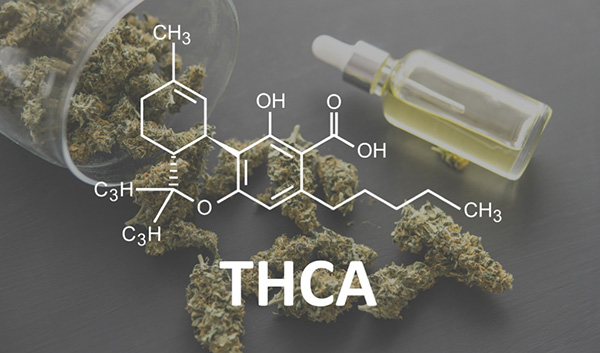
THCA Product | Fifth Ave Green House
Is this the end for THCA products?
Since Congress passed the Farm Improvement Act of 2018 (or the Farm Bill of 2018), people have been trying to find creative ways to sell psychoactive products made from cannabis. One example is THCA products such as THCA herbs, which have high THCA content.
In this article, we examine the legal status of THCA products and why the “loophole” that led to their popularity appears to be coming to an end.
The 2018 Farm Bill and an introduction to THCA
Hemp can only contain 0.3% delta-9-tetrahydrocannabinol (THC). According to the DEA, hemp or its derivatives are cannabis if they contain more than 0.3% THC. The problem is that hemp often contains delta-9-tetrahydrocannabinolic acid (THCA). THCA is very similar to THC and is converted to THC when heated.
Although THCA itself is not mentioned in the federal definition of hemp or marijuana, its conversion to THC means it plays an important role in determining the legal or illegal status of a product.
The 2018 Farm Bill requires a “total THC” test for all marijuana, defined as the actual THC content plus the THCA converted to THC. If the total THC content exceeds 0.3% using this method, the hemp must be destroyed.
Interestingly, there are several ways to convert THCA to THC, a method called post-decarboxylation. The U.S. Department of Agriculture's (USDA) 2018 Farm Bill regulations define this process as follows:
In the context of testing methods for THC concentrations in hemp, this refers to a value determined after the decarboxylation process, which indicates the total potential content of delta-9-tetrahydrocannabinol, which is derived from the sum of the THC and THCA content and is expressed on a dry weight basis. The value of THC after decarboxylation can be calculated using a chromatography technique using heat and gas chromatography, which converts THCA from its acid form to its neutral form THC. Thus, this test calculates the total potential THC in a given sample. The value of THC after decarboxylation can also be calculated using a liquid chromatography technique, which leaves the THCA intact. This technique requires the use of the following conversion: [Total THC = (0.877 x THCA) + THC]which calculates the potential total THC content of a given sample.
To put it simply, gas chromatography heats THCA until it is converted to THC, while liquid chromatography does not convert THCA but applies the formula to calculate total THC content. There is a pretty lively debate in the industry about which of these two approaches is better, but we'll leave that discussion for another day. Now let's look at how this affects THCA products.
What proponents of THCA products claim
The 2018 Farm Bill and the U.S. Department of Agriculture require total THC testing for pre-harvest batches of marijuana. Post-harvest testing of cannabis or cannabis products is not required. The Controlled Substances Act (CSA) prohibits marijuana but does not include specific requirements for testing marijuana products because it is unregulated.
This all raises an important question: If marijuana passes pre-harvest testing (i.e., THC and THCA levels are lower than required by the 2018 Farm Bill) and after THCA levels rise to the point where they would be above the 0.3% limit if retested, would it still be illegal?
Many people argued that since it passed the first test, it was technically perfectly legal, at least under federal law. This perspective is well represented by Rod Knight. The case he makes, canna-business.law speculates that THCA flower is not a controlled substance. Once the herb is classified as containing less than 0.3% THC, it remains legal even if it has high THCA levels.
Why THCA products could be problematic
First, state laws are important. Even if something is legal at the federal level, if it is banned in a particular state, it cannot be sold there.
Many states have requirements for the total THC content of cannabis products, which I believe would specifically prohibit THCA products. Even if THCA products are legal at the federal level, in a given state this is purely theoretical. In states where the total THC content of the product is a mandatory test value, these products are undoubtedly illegal.
Second, it is practically difficult for law enforcement or courts unfamiliar with the nuances of federal marijuana law to argue that THCA products are legal. Imagine a truck driver pulled over with a car full of THCA products (25% THCA content). After testing these products, the THC content will be in the double digits. The driver could get in serious trouble and will have to do his best to convince the court that the loophole in the testing requirements in the 2018 Farm Bill makes the product legal. Even assuming the argument is valid, the chances are too high that law enforcement will disagree. The issue would potentially have to be resolved by an appeals court, which would be expensive, time-consuming and risky.
The law provided a loophole, at least for a time, that allowed THCA products to gain a foothold in a market where other THC products were illegal.
This allowed people in states without recreational cannabis laws to still get high by exploiting this loophole and using THCA products instead of THC cannabis. However, as more states move forward with legalizing recreational cannabis, the market for THCA is naturally shrinking.
DEA’s stance on THCA products
The DEA seems to have solved this problem for now. According to the 2018 Farm Bill, THCA must be converted to THC. In the near future, the DEA is expected to take further regulatory action against cannabinoid products. Who knows what these will be or if THCA products will be removed from the market?
We could also see action from Congress when the Farm Bill is renewed later this year. So nothing has been decided until then, but the future of THCA products seems uncertain at best.

Post a comment: